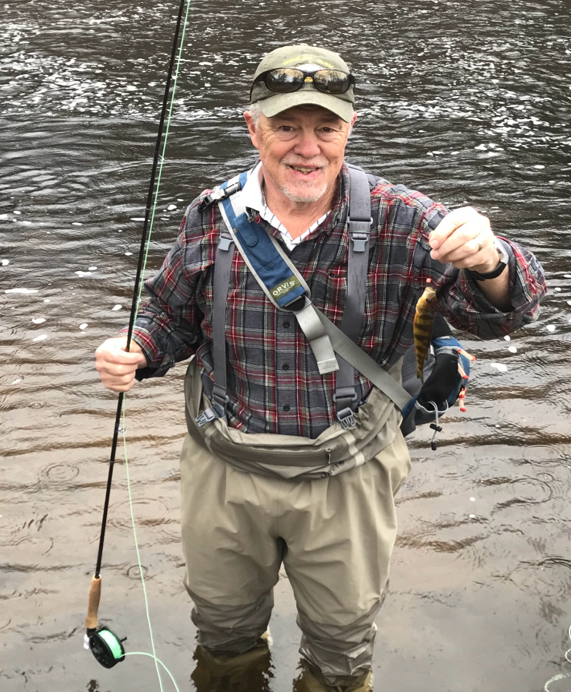WRITING ON THE FLY
By George Liset
I grew up listening to the Red Sox on the radio. Growing up in North Weymouth, Mass., I lived on a hill and from my second floor bedroom window I could see the Boston skyline and Quincy Bay.
As I listened to the Sox on the radio, I could look out my window and pinpoint Fenway Park. As I listened to the play by play, I could picture in my mind every nook and cranny in the park as a fair ball would bounce around the outfield or a homer would curve around the Pesky Pole. My love of the Red Sox on the radio has not diminished over the years and has even grown. A simple pleasure and joy.
As I was listening to the game last night, dozing in and out, the announcers were talking about Ted Williams in the context of fly-fishing which immediately brought me to life. The play-by-play analyst made the statement that rarely is one person good at doing one thing, but that Ted Williams was arguably good at three things: hitting baseballs (Ted was the last hitter in baseball to hit .400), flying jets (Ted was a fighter pilot in the Korean War) and fly-fishing (Ted is in the Fly Fishing Hall of Fame).
One announcer mentioned that his dad used to guide Ted fly-fishing for salmon on the Miramichi River up in New Brunswick, Canada. I remember growing up and watching Curt Gowdy and Ted fly-fishing on the American Sportsman show on Saturday afternoons.
Much has been written about Ted Williams. My friend Bobby, who is retired and lives in New York State, works at the bookstore at the Baseball Hall of Fame in Cooperstown, N.Y. I got to catch up with “Bookstore Bob” as he is called lovingly at work, at our wives recent high school reunion in Vermont near where Ted Williams and his wife had a home in Putney.
Ted would fly-fish the local rivers when he had the opportunity. Bobby mentioned that Ted’s book, “The Science of Hitting” by John Underwood of Sports Illustrated fame, is still one of the top three books sold at the bookstore.

Ted’s fame as a fly-fisherman is legendary in the angling community. John Underwood who wrote the book on hitting also wrote the book Ted Williams Fishing “The Big Three.” Tarpon, Bonefish and Atlantic salmon. In his book, Underwood said that Ted had caught a thousand of each fish on a fly rod by 1982, one reason Ted is in the Fly Fishers Hall of Fame. In the book, Ted called the Atlantic salmon the greatest of game fish.
Even though we are in the “Dog Days of Summer,” fall is around the corner and in another month, the Landlocked salmon will be heading to the rivers that enter Lake Winnipesaukee to spawn. Landing a salmon is a challenge even for the experienced fly-fisher. For every three fish you hook up with, you may be lucky to land one. It is exciting to see the salmon explode out of the water and perform their acrobatics. That is one indication that you have caught a salmon and not a lake trout.
Although I am probably nine hundred and fifty salmon behind Ted, here are a few tips to keep in mind. Use a long-handled net. I’d be a little closer to Ted if I had learned this earlier in my career. I have lost quite a few using a short-handled net.
Orange Wooly Buggers with a Maribou tale worked well last fall. Others had luck with the olive-colored Bugger with a little flash in it. Most importantly, get out to fish as much as you can. The more you fish, the more you catch.
So put the Sox on the radio, get out your tying vice, and enjoy the game!
A writer from Dover, George Liset writes about all things Fly Fishing. George has worked as a lobsterman, lifeguard, wrangler, boat captain, fishing instructor, and has traveled in most of the lower 48 states. Upon graduation from Wheaton College, Illinois, George began his teaching career and currently teaches in Dover and has coached Track and Field most recently at UNH. Liset has been published nationally and internationally in the area of track and field and coaching.





